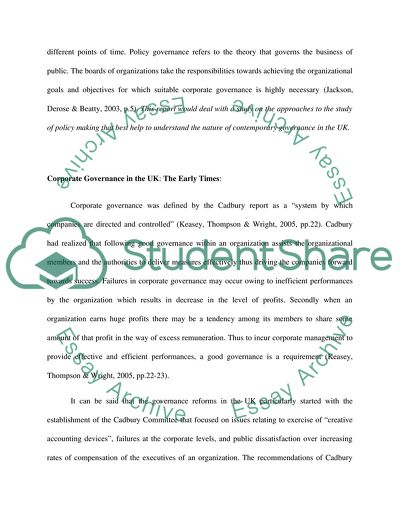Cite this document
(Policy Making and Contemporary Governance in the United Kingdom Case Study Example | Topics and Well Written Essays - 4000 words, n.d.)
Policy Making and Contemporary Governance in the United Kingdom Case Study Example | Topics and Well Written Essays - 4000 words. https://studentshare.org/politics/1755157-critically-assess-which-approaches-to-the-study-of-policy-making-best-help-to-understand-the-nature-of-contemporary-governance-in-the-uk
Policy Making and Contemporary Governance in the United Kingdom Case Study Example | Topics and Well Written Essays - 4000 words. https://studentshare.org/politics/1755157-critically-assess-which-approaches-to-the-study-of-policy-making-best-help-to-understand-the-nature-of-contemporary-governance-in-the-uk
(Policy Making and Contemporary Governance in the United Kingdom Case Study Example | Topics and Well Written Essays - 4000 Words)
Policy Making and Contemporary Governance in the United Kingdom Case Study Example | Topics and Well Written Essays - 4000 Words. https://studentshare.org/politics/1755157-critically-assess-which-approaches-to-the-study-of-policy-making-best-help-to-understand-the-nature-of-contemporary-governance-in-the-uk.
Policy Making and Contemporary Governance in the United Kingdom Case Study Example | Topics and Well Written Essays - 4000 Words. https://studentshare.org/politics/1755157-critically-assess-which-approaches-to-the-study-of-policy-making-best-help-to-understand-the-nature-of-contemporary-governance-in-the-uk.
“Policy Making and Contemporary Governance in the United Kingdom Case Study Example | Topics and Well Written Essays - 4000 Words”. https://studentshare.org/politics/1755157-critically-assess-which-approaches-to-the-study-of-policy-making-best-help-to-understand-the-nature-of-contemporary-governance-in-the-uk.


